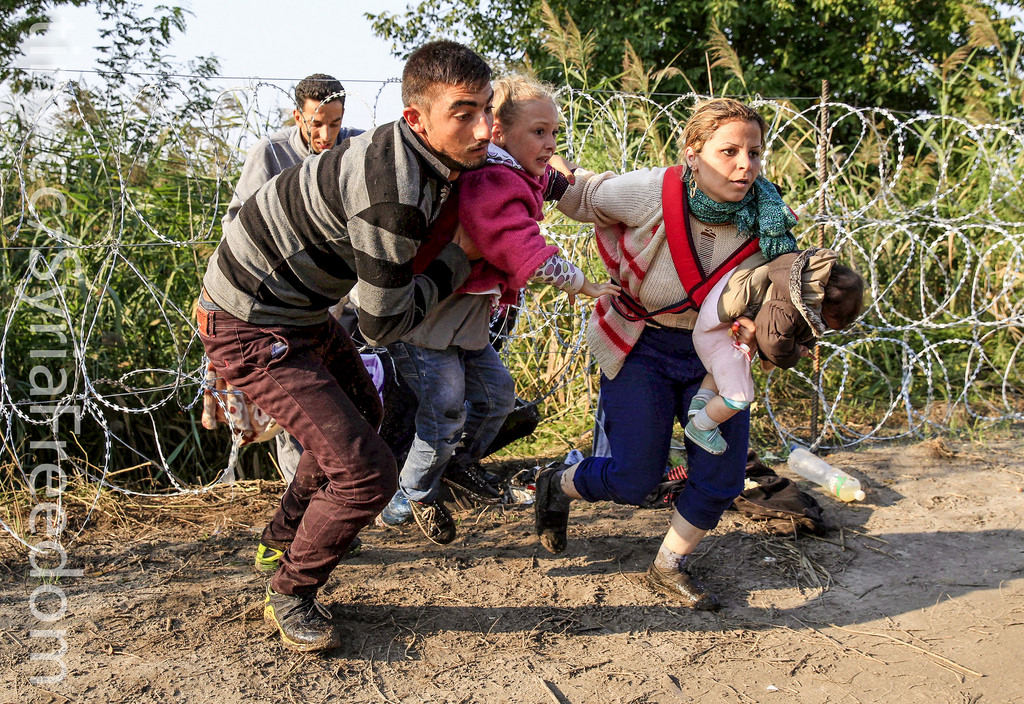Donald Trump has condemned the “heinous” deadly chemical weapon attack on a Damascus suburb and said he will decide within the next 24 to 48 hours whether to launch a military reprisal against Bashar al-Assad’s regime in Syria.
Speaking to reporters as he convened his cabinet, the US president said: “We cannot allow atrocities like that”, adding that he had “not much doubt” about who was behind the poison gas attack in Douma that killed more than 48 people and affected hundreds more.
When asked if military action was a possibility, Trump said: “Nothing is off the table … If it’s Russia, if it’s Syria, if it’s Iran, if it’s all of them together, we’ll figure it out, and we’ll know the answers quite soon. So we’re looking at that very, very strongly.”
Trump, who has consulted his British and French allies, announced: “We will be making some major decisions in the next 24 to 48 hours.”
Later, with his new, hawkish national security adviser, John Bolton, beside him, he suggested a foreshortened timetable, saying: “We’ll be making that decision very quickly, probably by the end of the day.”
Asked if the Russian president, Vladimir Putin, bore any responsibility for the latest attack, Trump said: “He may, yeah, he may. And if he does it’s going to be very tough, very tough. Everybody’s gonna pay a price. He will, everybody will.”
His remarks echoed a tweet on Sunday in which he specifically criticised Putin for the first time, warning that he would pay a “big price” for backing the Assad government.
Almost exactly a year ago Trump authorised a Tomahawk missile strike on the Syrian Shayrat airbase within three days of a chemical attack deemed to have been undertaken by the Assad regime airforce. Russia in effect controls the airspace over Syria and runs its military operation from the Khmeimim airbase in north-western Latakia province and the nearby Russian naval base at Tartus.
The US defence secretary, Jim Mattis, visited the largest US military base in the Middle East in Qatar on Monday, and will have been briefed on the options for a US attack.
The US president’s comments came before a UN security council meeting. At the meeting, the US ambassador to the UN, Nikki Haley told the council: “The United States is determined to see the monster who dropped chemical weapons on the Syrian people held to account. … History will record this as the moment when the Security Council either discharged its duty, or demonstrated its utter and complete failure to protect the people of Syria. Either way, the United States will respond.”
Washington is demanding that Russia ends its veto on a UN accountability mechanism that can determine responsibility for chemical attacks. UN bodies can investigate whether a chemical attack has occurred but not point blame at any group or regime.
Speaking in Stockholm, the British prime minister, Theresa May, said: “We are working urgently with our allies to assess what has happened. But, we are also working with our allies on any action that is necessary.”
The French president, Emmanuel Macron, spoke to Trump by phone and agreed a strong joint response. In Paris, Macron held talks with Mohammed bin Salman, the Saudi crown prince who is one of the strongest backers of the Syrian opposition.
The Russian foreign ministry insisted there was no evidence of a chemical attack, let alone Syrian government involvement, adding the Syrian rebel fighters, branded by Moscow as jihadi terrorists, may have mounted a false flag operation to try to lure a reluctant Trump administration deeper into the seven-year Syrian civil war.
The rebels had been mounting a last-ditch, and now abandoned, resistance to the Syrian government taking over Douma. The Russian foreign minister, Sergei Lavrov, said: “Our military specialists have visited this place and they did not find any trace of chlorine or any other chemical substance used against civilians.”
The Kremlin spokesman, Dmitry Peskov, said: “It’s necessary to examine very carefully what happened in Douma. And it goes without saying that without this information, making any deductions is wrong and dangerous.”
Russia also blamed Israel for escalating the Syrian crisis by carrying out an overnight air raid on a largely Iranian run T-4 airbase near Homs inside Syria. Iran says at least three Iranians were among the 14 dead in the Israeli missile attack. Israel had previously struck the airbase, in March last year and February this year.
Israel is determined to prevent Iranian entrenchment in Syria, and block the flow of arms to Iranian-backed Hezbollah forces close to the Israeli border in south-west Syria.

